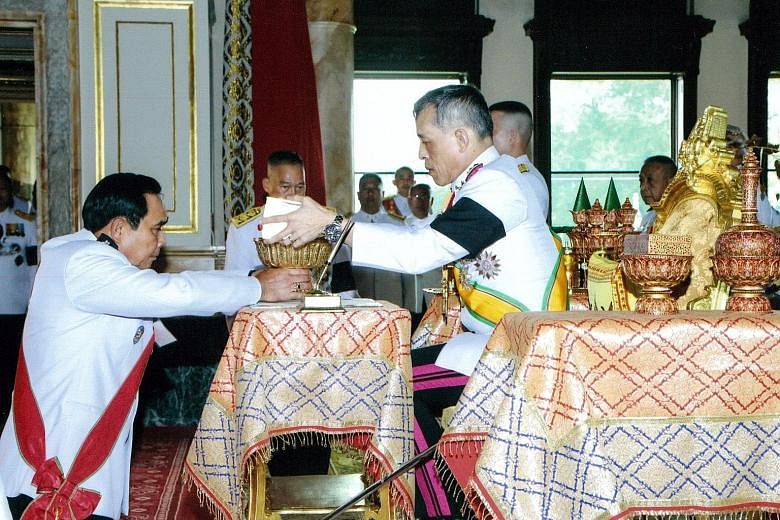Thailand's next government will be tightly scrutinised for its adherence to a 20-year "national strategy" on social and economic development being drawn up under the current military government.
Under a Bill passed during its first reading on Thursday, a transitional Upper House, or Senate, whose appointments are indirectly controlled by the ruling junta, can refer such infractions to the Constitutional Court, where future elected leaders could face legal penalties.
While the Bill in question may be amended before it is turned into law, critics argue that it is essentially a policy straitjacket being imposed by the military government on future elected leaders.
With the kingdom enacting its 20th Constitution on April 6, officials said an election can be expected within 19 months.
The kingdom now has no Senate. It has been operating with an interim assembly after the last coup in 2014. Under the Constitution, the transitional Senate will serve for five years. Senators will be picked by a team nominated by the junta.
The broad concept of the national strategy was included in the draft Charter that sailed through a referendum last year. A panel that will be set up to oversee the long-term plan will comprise not just Cabinet members and experts from various fields, but also senior military officials and the permanent secretary of the defence ministry.
Supporters said this blueprint will put the country on a stable path of development after years of political turmoil resulted in inconsistent and allegedly populist policies.
The previous civilian government under prime minister Yingluck Shinawatra, for example, angered the urban middle class when it stockpiled tonnes of rice bought from farmers at about 50 per cent above the market price, as part of an election pledge the Puea Thai party made to voters. The former premier is now fighting a criminal negligence case over this matter and risks having her assets seized.
"We need to lay the foundation for the country's development for 20 years," Prime Minister Prayut Chan-o-cha said yesterday.
"This is like what China did decades ago… This needs cooperation from those in politics and government service, as well as the public."
While the government said there is some leeway to adjust the plan, it has stressed changes must be in line with the new Constitution. Yet the Charter itself has been criticised for clauses that crimp the power of future elected governments.
"I don't think (the 20-year plan) is practicable in any sense of the word," former foreign minister Kasit Piromya, now a member of a government-appointed reform panel, told The Straits Times.
Political commentator Suranand Vejjajiva, former secretary-general to Ms Yingluck, questioned the wisdom of having a non-elected government lay out strategies involving the allocation of the country's wealth, with little public input.
"If it involves the allocation of resources, the government that comes in after an election should have some say," he said.
The Democrat Party's deputy leader Kiat Sittheeamorn told The Straits Times: "We still firmly believe that elected governments should act on behalf of the people. If you have sufficient flexibility, and (the 20-year) plan is a guideline, then there is no issue. But it is too rigid, it becomes an obstacle."
Meanwhile, Thailand's Parliament has agreed to transfer control of royal agencies from the government to new King Maha Vajiralongkorn, members of the military-appointed legislature said yesterday, Reuters reported. The decision came on Thursday. "It involves the transfer of agencies that work for the monarch so that they are grouped together and report to the King," one Parliament member was quoted as saying by Reuters.

